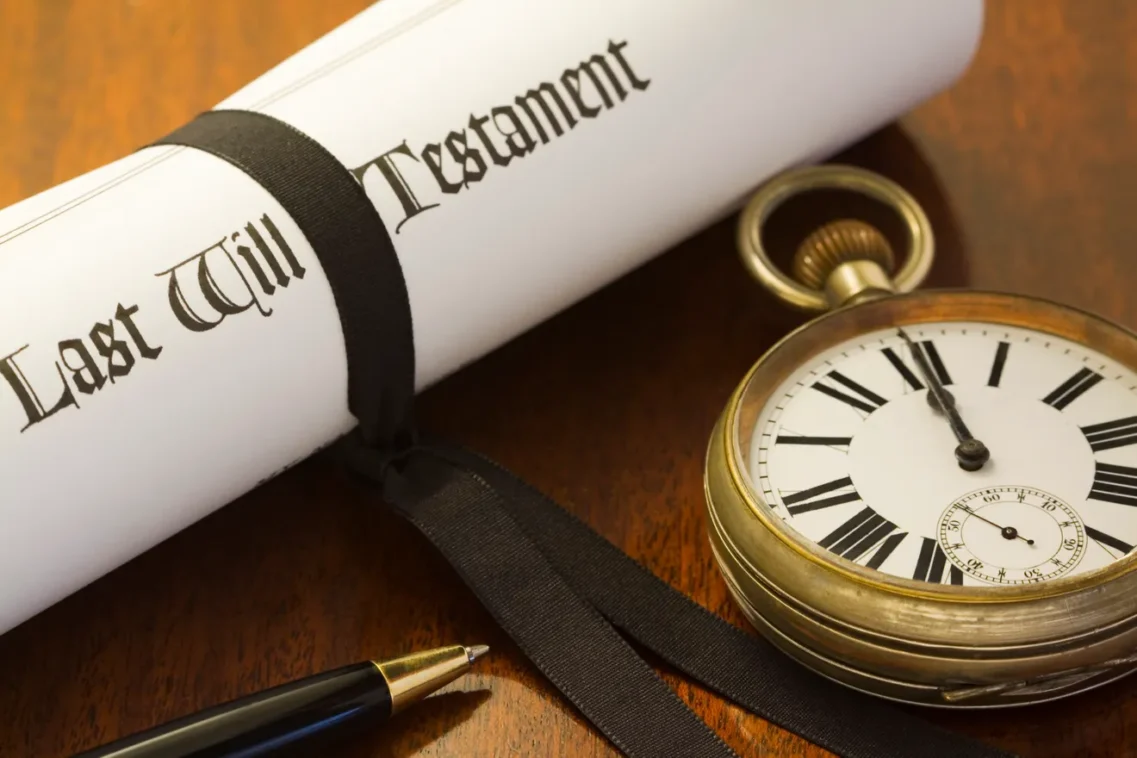The uncertainty of the COVID-19 pandemic has us all considering how unforeseen circumstances can affect our lives. According to a 2020 survey by Everplans, half of all respondents said that the pandemic made them realize how unprepared they were for a serious emergency, and 64 percent reported that the pandemic made them realize that planning for the future is more important than ever.
While people may know that getting their affairs in order is important, many people usually just haven’t gotten around to it. Now’s the time.
Here’s what experts want you to know:
Your last will and testament: The basics
If you haven’t started at all, experts urge you to cover the basics. “Everyone should have a last will and testament, a living will, and powers of attorney for both health care and financial matters,” says Shamus Cassidy of Cassidy Law.
Some people, he adds, may consider a revocable, living trust as a means to avoid a probate court process at their passing and to provide greater distribution options for beneficiaries.
A last will and testament ensures that your assets are distributed how you’d like upon your death. It’s also the mechanism for choosing an executor and usually nominates a guardian for minor children. Without a will, if you pass away, determinations are made not based on your wishes, but based on the laws of your state of residence. The process is called probate and can be lengthy and pricey.
A living will, also known as an advance health care directive, is a legal document that designates a trusted person to decide what actions should be taken for your health if you are deemed by medical professionals no longer able to do so for yourself.
“You may need help understanding your medical circumstances,” says Garrison Carr, an attorney with Decker Vonau. “Especially for the elderly, medical names and advances in technology can be very hard to understand. Instead of relying [only] on a doctor, you have a person you trust to review your files and make appropriate medical decisions”
Financial decisions are equally important. “If I’m asleep or awake, the bills come,” says Carr. “My house, my car–the bill comes no matter what. A financial power of attorney allows for you to designate an agent to step into your shoes and function as if you showed up to the bank.” That way, if you become incapacitated, you don’t fall behind and risk losing assets to foreclosures and repossessions.
Also, be certain that your beneficiaries are accurate on all investment accounts and other important accounts. “Be mindful of how your assets are titled and of your beneficiary designations, often referred to as payable on death (POD) or transfer on death (TOD),” says Cassidy. “I have unfortunately seen many plans where the assets are not properly titled or designated in a manner to avoid probate court, even at times when the client has well-drafted estate planning documents created on their behalf,” he says.
Revisit your estate plans every 3-5 years
There are many life stages in which you want to revisit your estate plans, says Geoff Kunkler, an attorney with Carlile Patchen & Murphy. They include new additions to the family, adult children leaving home for the first time, preparing for retirement, and heading into the sunset years.
Kunkler references the five Ds. “If there’s been a death, divorce, a diagnosis, a decline in health or a new decade …we should probably revisit your plan,” he says.
Who needs an estate plan?
Think you’re young and healthy and don’t need a plan? Regardless of age or assets, experts say estate planning is not only for seniors. “Once you’re 18 … [parents] are not the decision-makers anymore, so you probably want them to make your decisions if you can’t,” says Kunkler. “If you’re in an accident, you need a healthcare power of attorney saying that mom and dad can make [your] decisions.”
“Estate planning is also not just for the wealthy,” Kunkler says. You don’t get your affairs in order only for your own peace of mind, Carr says, but for those you leave behind. Without having the proper documents in place, “You are leaving a headache to usually your most responsible child. Now [you] have created a menagerie of problems that could have easily been rectified, if you had put things in order before you passed.”
Hire an estate planning expert
Since everyone’s needs are a little different, an estate or retirement planning expert can help you determine yours.
“I get a little cringy when people try to find and do this stuff online on their own,” Kunkler says. “I think there are certain things, like your taxes, that you should go to an accountant for. You should go to a doctor, not WebMD. I think lawyers are the same way.”
That said, he agrees that there is good information online for researching what types of documents you may need. That way you can go into a meeting with a professional planner with a good idea of what you need and whom you’d designate. And even though the documents can be pricey, “Many professionals, including myself, give a free consultation,” says Kunkler.
The original version of this story appeared in Columbus CEO on December 28, 2021.



